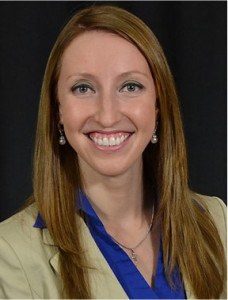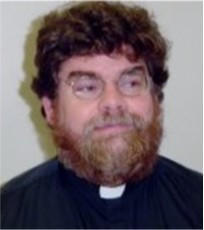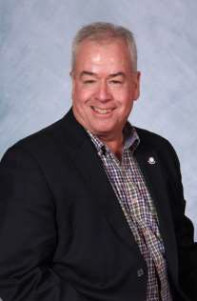 On April 7, 2015, my husband and I were blessed with our first child, a healthy baby boy named James. As a four month old, he brings so much joy into our lives that it is hard to imagine life before him.
On April 7, 2015, my husband and I were blessed with our first child, a healthy baby boy named James. As a four month old, he brings so much joy into our lives that it is hard to imagine life before him.
Becoming a mother has been a life-changing experience. Other working moms told me going back to work would be difficult, but I never imagined how hard it truly would be. I had my first reality check of what it means to be a working mom when I returned to the Diocese of Green Bay after two months of maternity leave.
I sobbed as I pulled into the parking lot at work, which surprised me for two reasons: I sincerely love my job, and I knew that James was in good hands. He was at home, safe and sound, with his doting grandparents watching over him. Despite all of these reasons that should have put my mind at ease, I longed for days of snuggling on the couch, watching my son peacefully sleep in my arms. I longed for the sheer joy that could only come from that time together.
The transition back to work, however, gave me the opportunity to reflect on what it means to work, and more importantly, what it means to have dignity-filled work. As Archbishop Wenski mentions in his Labor Day address, “Dignity-filled work and the fruits of that labor nourish families, communities, and the common good.”
Regardless of whether or not a mother stays at home or works outside of home, these mothers are laboring to raise and provide for their families. These efforts are the foundation of society because it is within our homes-the domestic church-that each person learns what faith, love, and sacrifice mean. And, it is also within the home, that each individual learns about what is best for the entire family, the common good, and society as a whole.
Sadly, we know that there are many cultural, economic, and structural challenges facing families today. Imagine that…
- I dropped out of school to find work, so I could provide for my baby;
- I have no support from family or friends;
- I do not work a job that supports a living wage;
- I have a child with a degenerative illness;
- My hours are cut and so is my health insurance;
- I cannot afford my child’s health care and day care;
- I lose my job.
Now, imagine how lonely and terrified I would be.
As a church, are we not called to care for our brothers and sisters in Christ because we are part of one human family? The ability to work a dignity-filled job is crucial for individuals and families to fully develop and participate in God’s creation. Bishop David Ricken of the Diocese of Green Bay invited every person to journey with him into the new evangelization so that each person can deepen his or her prayer life. Through prayer, each person will strengthen his or her personal relationship with Christ and become a better disciple in order to make disciples of others.
Because of our personal relationship with Christ, we must “…recommit ourselves around the world in the human family, and build systems and structures that nurture family formation and stability in our own homes and neighborhoods” (Archbishop Wenski, Labor Day Statement).
Knowing that work should allow an individual to develop and flourish as a person, it should also serve as a means for families to prosper. Therefore, as Labor Day draws near, let us pray that all families have dignified-work so that their family can prosper.
Catherine Orr is the Director of Living Justice in the Diocese of Green Bay and the co-chair of the Roundtable Association of Catholic Diocesan Social Action Directors.

